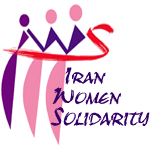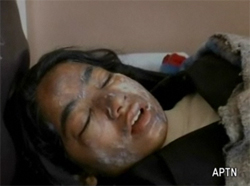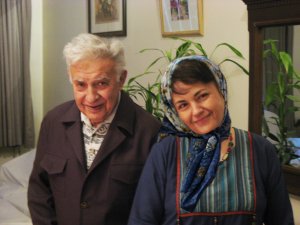KANDAHAR, Afghanistan (AP) — No students showed up at Mirwais Mena girls’ school in the Taliban’s spiritual birthplace the morning after it happened.
A day earlier, men on motorcycles attacked 15 girls and teachers with acid.
The men squirted the acid from water bottles onto three groups of students and teachers walking to school Wednesday, principal Mehmood Qaderi said. Some of the girls have burns only on their school uniforms but others will have scars on their faces. One teenager still cannot open her eyes after being hit in the face with acid. ”Today the school is open, but there are no girls,” Qaderi said Thursday. ”Yesterday, all of the classes were full.” His school has 1,500 students.
Afghanistan’s government condemned the attack as ”un-Islamic” and blamed it on the ”country’s enemies,” a typical reference to Taliban militants. Qari Yousef Ahmadi, a Taliban spokesman, denied the insurgents were involved. Girls were banned from schools under the rule of the Taliban, the hard-line Islamist regime that ruled Afghanistan from 1996 to 2001. Women were only allowed to leave the house wearing a body-hiding burqa and accompanied by a male family member.
Qaderi said he believes there were multiple teams of assailants because the attacks took place at the same time in different neighborhoods. Provincial Police Chief Mati Ullah Khan said three people have been arrested. He would not provide further details because the investigation was not completed.
The country has made a major push to improve access to education for girls since the Taliban ouster. Fewer than 1 million Afghan children — mostly all boys — attended school under Taliban rule. Roughly 6 million Afghan children, including 2 million girls, attend school today.
But many conservative families still keep their girls at home and the acid attacks are a reminder that old biases remain.
”They don’t want us go to school. They don’t like education,” said Susan Ibrahimi, who started teaching at Mirwais Mena four months ago. She and her mother, also a teacher at the school, were wearing burqas on their walk to work when the motorbike stopped next to them.
”They didn’t say anything. They just stopped the motorbike and one of the guys threw acid on us and they went away,” Ibrahimi said in a telephone interview.
The acid ate through the cloth covering Ibrahimi’s face and left burns down her left cheek. The acid also burned her mother’s hand.
”I am worried that I will have scars on my face,” said Ibrahimi, who is 19 years old and not married.
Fifteen people were hit with acid in all, including four teachers, Qaderi said.
Ibrahimi said it was the Taliban that attacked her but then explained that she used the term to refer to anyone who was against education for women.
The United Nations called the attack ”a hideous crime.”
First lady Laura Bush on Thursday decried the attack as cowardly, saying in a statement the ”shameful acts are condemned by honorable people in the United States and around the world.”
The attacks are ”contrary to previous assurances Afghans have been given that there would not be further attacks against schools or students,” the U.N. said in a statement.
Arsonists have repeatedly attacked girls’ schools and gunmen killed two students walking outside a girls’ school in central Logar province last year. UNICEF says there were 236 school-related attacks in Afghanistan in 2007. The Afghan government has also accused the Taliban of attacking schools in an attempt to force teenage boys into the Islamic militia.
In Wednesday’s attack, three young women were hospitalized for burns. Two were released Thursday morning, but 17-year-old Shamsia Husainai was still lying on a hospital bed unable to open her eyes. Her brother Masood Morbi said her body shook about every 10 seconds.
She could talk, but her brother said her words were mangled. Her face was covered with a cream to treat her burns. The doctors were giving her pills to blunt the pain.
Husainai’s younger sister told The Associated Press on Wednesday that they had been walking on the street with a group of friends, all of whom were wearing a typical Afghan school uniform of black pants, white shirt, black coat and white headscarf.
Fourteen-year-old Atifa Bibi was also badly burned on her face but she was released from the hospital late Wednesday.
Qaderi, the principal, said no one in the school had reported any direct threats but one of the teachers attacked Wednesday had reported an incident two days ago in which two men threatened her.
”She told me when she was walking two men said to her, ‘Oh, you are putting on makeup and going to the school. Okay, we will see you.”’
Husainai and Bibi’s aunt, Bibi Meryam, said no one had threatened them but they would consider keeping the girls at home until it felt safer.
A handful of teachers showed up Thursday, but Qaderi said the only students who tried to attend were about 20 primary school students who arrived late in the afternoon and were sent home because the school had already decided not to hold classes.
Ibrahimi, the young teacher who was burned, said she and her mother stayed home.
”Yesterday we didn’t go to school. Today we didn’t go to school. I don’t know about the future,” she said.
——
Associated Press Writers Heidi Vogt and Rahim Faiez contributed to this report from Kabul.


